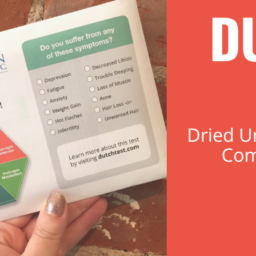
Essential fatty acids are just that – essential. Our body can produce most of the fats it needs (such as cholesterol, saturated and unsaturated fatty acids), however it can not produce omega-3 or omega-6 fatty acids. This makes them essential to consume in our diet.
Omega-6 fatty acids are found in the oils of seeds and grains, such as sunflower, safflower, soy and corn oils. The average North American tends to consume adequate amounts of omega-6 fatty acids through their diet.
Omega-3 fatty acids are found in fish and fish oils, flax, walnuts and canola. Omega-3 fatty acids have been shown in over 8000 studies to be important for human health and nutrition. Omega-3s have a role in every stage of development from pregnancy and infancy through to elder adulthood. The average North American diet does not provide adequate amounts of omega-3 fatty acids and most people would benefit from an omega-3 supplement.
The ABCs of EFAs
The language of essential fatty acids (also known as EFAs) can be confusing. Knowing the basic ‘ABCs’ of the EFAs can simplify things and make selecting a supplement much easier.
ALA – alpha-linolenic acid. An omega-3 fatty acid found in flax, walnuts and canola oil. The other omega-3s (EPA and DHA) can be synthesized from this molecule. The primary source of omega-3s for vegans.
DHA – docosahexaenoic acid. An omega-3 fatty acid. The richest source is fish and fish oil. Especially important for the central nervous system, brain and eye. Has anti-inflammatory effects in the body.
EPA – eicosapentaenoic acid. An omega-3 fatty acid. The richest source is fish and fish oil. Important for mood and behaviour as well as anti-inflammatory effects.
GLA – gamma-linolenic acid. An omega-6 fatty acid. The richest sources are evening primrose oil, borage oil, and black currant oil.
LA – linoleic acid. An omega-6 fatty acid. Found in the oils of seeds and grains such as sunflower, safflower, soy and corn. The other omega-6 fatty acids can be synthesized from this molecule.
Balancing 3s and 6s
 In the body omega-3 and omega-6 fatty acids (ALA and LA) compete for the same enzymes to be converted into the health promoting long-chain omega 3s and 6s (DHA, EPA and GLA). This is significant because the substances derived from the omega 3 fatty acids, EPA and DHA have opposite effects to the omega 6 derived substances. EPA and DHA lead to eicosanoids that are anti-inflammatory, while the eicosanoids derived from GLA are pro-inflammatory.
In the body omega-3 and omega-6 fatty acids (ALA and LA) compete for the same enzymes to be converted into the health promoting long-chain omega 3s and 6s (DHA, EPA and GLA). This is significant because the substances derived from the omega 3 fatty acids, EPA and DHA have opposite effects to the omega 6 derived substances. EPA and DHA lead to eicosanoids that are anti-inflammatory, while the eicosanoids derived from GLA are pro-inflammatory.
High intake of dietary omega 6s can be detrimental to health by blocking enzyme conversion of the omega-3s to their active EPA and DHA form. Maintaining an optimal ratio of omega-3s and omega-6s is essential for health.
The standard North American diet has a ratio of 20:1 omega-6s to omega-3s. An ideal ratio is closer to 1:1 or 2:1. Excess omega-6s have been implicated in thrombosis, vasoconstriction, inflammation, heart disease, autoimmune disease, rheumatoid arthritis, ulcerative colitis, multiple sclerosis, lupus, asthma, depression, and other chronic diseases.
Due to this imbalance in omega-3 and omega-6 fatty acids most people do not require an omega-6 supplement but could benefit from an omega-3 supplement to correct the essential fatty acid ratio.
The Benefits of Omega-3s
Higher intake of omega-3 fatty acids have numerous benefits and no disadvantages. There are so many benefits of omega-3s that it is easiest to break down the benefits by system. Unless otherwise indicated both EPA and DHA are recommended to achieve the listed benefit.
General Health
- Improved mood and memory

- Healthy metabolism
- Bone strength
- Healthy skin
- Decreased inflammation
- Better management of pain associated with arthritis, ankylosing spondylitis and back pain
Cardiovascular Health
- Reduced triglycerides
- Reduced blood pressure
- Decrease inflammation in the heart and blood vessels
- Decreased risk of angina, heart attack and stroke
Cognitive Health
DHA is important for development of the brain and nervous system in infants, and in the repair and protection of the nervous system from age-related damage. DHA plays an important role in:
- Development of fetal nervous system in utero

- Improved cognitive function in infants, toddlers and children
- Preventing dementia and Alzheimer’s in the elderly
- Improving cognitive performance in the elderly
EPA (combined with DHA) has the greatest benefit for conditions of altered mood and behaviour including:
- ADHD
- Depression
- Bipolar disorder
- Schizophrenia
Pregnancy, Infancy and Breast Feeding
DHA is necessary for the proper development and functioning of the nervous system, brain, and eyes. The fetus is dependent on the mother for DHA intake – which must be high enough to meet both the requirements of the fetus and the mother. Improved DHA levels in mothers and their breast milk is associated with:
- Improved fertility
- Decreased risk of premature birth
- Decreased risk of post-partum depression
- Improved attention, focus, learning, intelligence and behaviour in children
- Decreased risk of allergies in children
- Improved immune development
- Improved visual acuity

Eye Health
- Decreased dryness
- Decreased redness
- Improved tear production
- Decreased risk of age-related macular degeneration
- Decreased risk of cataracts
- Protection against age-related damage to the eyes
Essential Fatty Acid Supplements
For most people, the preferred form of essential fatty acid supplement is a fish oil supplement. Vegans may use flax oil as an alternative, but will require higher doses because the conversion to EPA and DHA in the body is inefficient.
Select a fish oil supplement that is:
- Made from small cold water fish (such as sardines and anchovies) or cod liver.
- Fresh. Fish oil can go rancid and should not be used beyond the listed best before date.
- Adheres to high production standards and performs third-party testing for peroxide, heavy metals, dioxins, polychlorinated biphenyl (PCBs) and other contaminants.
- Is sustainably harvested. This means the fish used are not endangered, are not from overfished waters and 100% of fish that are harvested are used for human or animal consumption.
Fish oil doses are dependent on the levels of EPA and DHA and should be individualized according to your individual health requirements. Speak to a Naturopathic Doctor to determine your ideal EPA and DHA ratio and dosage. A basic maintenance dose for someone with no major health issues is approximately 500mg EPA and DHA daily.
Disclaimer
The advice provided in this article is for informational purposes only. It is meant to augment and not replace consultation with a licensed health care provider. Consultation with a Naturopathic Doctor or other primary care provider is recommended for anyone suffering from a health problem.
Selected References
Calder PC. n-3 polyunsaturated fatty acids, inflammation, and inflammatory diseases. Am J Clin Nutr 2006;83:1505S-1519S.
Deckelbaum RJ, Leaf A, Mozaffarian D, et al. Conclusions and recommendations from the symposium, Beyond Cholesterol: Prevention and Treatment of Coronary Heart Disease with n-3 Fatty Acids. Am J Clin Nutr 2008;87:2010S-2012S.
Freeman MP, Hibbeln JR, Wisner KL, et al. Omega-3 fatty acids: evidence basis for treatment and future research in psychiatry. J Clin Psychiatry 2006;67:1954-1967.
Goldberg RJ, Katz J. A meta-analysis of the analgesic effects of omega-3 polyunsaturated fatty acid supplementation for inflammatory joint pain. Pain 2007;129:210-223.
Helland IB, Smith L, Saarem K, et al. Maternal supplementation with very-long-chain n-3 fatty acids during pregnancy and lactation augments children’s IQ at 4 years of age. Pediatrics 2003;111:e39-44.
Helland IB, Smith L, Blomen B, et al. Effect of supplementing pregnant and lactating mothers with n-3 very-long-chain fatty acids on children’s IQ and body mass index at 7 years of age. Pediatrics 2008;122:472-479.
Howe PR. Dietary fats and hypertension: focus on fish oil. Ann NY Acad Sci 1997;827:339-352.
Kris-Etherton PM, Harris WS, Appel LJ; American Heart Association. Nutrition Committee. Fish consumption, fish oil, omega-3 fatty acids, and cardiovascular disease. Circulation 2002;106:2747-2757.
Saldeen P, Saldeen T. Women and Omega-3 Fatty Acids. Obstet Gynecol Surv 2004;59:722-730.
Simopoulos AP. The importance of the omega-6/omega-3 fatty acid ratio in cardiovascular disease and other chronic diseases. Exp Biol Med 2008;233:674-688.

















[…] Consider taking an omega 3 supplement (either fish oil or flax seed oil) and avoid consuming saturated fats. For more information on omega 3 fatty acids read the article here. […]
[…] Consider taking an omega 3 supplement (either fish oil or flax seed oil) and avoid consuming saturated fats. For more information on omega 3 fatty acids read the articlehere. […]
[…] Omega-3 rich fish oils are one of the most potent anti-inflammatories. They alter the fatty acid structure of cell membranes throughout the body. Having increased omega-3 fatty acids compared to omega-6 fatty acids decreases the amount of omega-6 available to be used for immune mediator production. This leads to lower levels of substances that are involved in many allergic processes, such as histamine and leukotrienes. Increase the amount of omega-3 you consume in your diet by eating cold water fish such as wild pacific salmon and mackerel. Flax seeds are also a great vegetarian source of omega-3s. Discuss with your Naturopathic Doctor whether you would also benefit from a fish oil supplement. […]
[…] Essential fatty acids are just that – essential. Our bodies need them, but can not produce them. They must come from dietary sources. Levels of omega-3 and omega-6 fatty acids have been shown to be lower in people with ADHD than in people without it. Additionally, men need nearly three times the volume of daily essential fatty acids compared to women to function well. This may be one reason why ADHD is more common in boys and men. […]
[…] are essential for growth. In addition to these nutrients proper amounts of protein, healthy fats (omega 3 fatty acids), and unrefined grains also support healthy growth in […]
[…] substances. These action play an important role in decreasing inflammation and clot formation. EPA supplementation is most important for preventing clot formation […]
[…] the best things you can do for headaches is to increase your intake of omega-3 fatty acids. These essential fats, found in cold water fish and flax seeds, have many benefits for both vascular and tension […]
[…] new recommendations are based on emerging evidence that fish are an abundant source of omega 3 fatty acids, and that these nutrients can have a “positive impact on growth and development as well as on […]
[…] vegetable oils contain omega 6 fatty acids that compete for absorption with anti-inflammatory omega 3s. Avoid canola, safflower, sunflower and so-called “vegetable” […]
[…] can help to decrease inflammation in the esophagus and improve symptoms. Natural supplements like omega-3 rich fish oil, slippery elm powder, marshmallow root and curcumin (turmeric) are all well-tolerated […]
[…] excellent source of protein, wild salmon is also rich in omega-3 fatty acids. Omega 3s improve insulin response and blood sugar metabolism and studies have shown lower […]
[…] Consider taking an omega 3 supplement (either fish oil or flax seed oil) and avoid consuming saturated fats. For more information on omega 3 fatty acids read the article here. […]